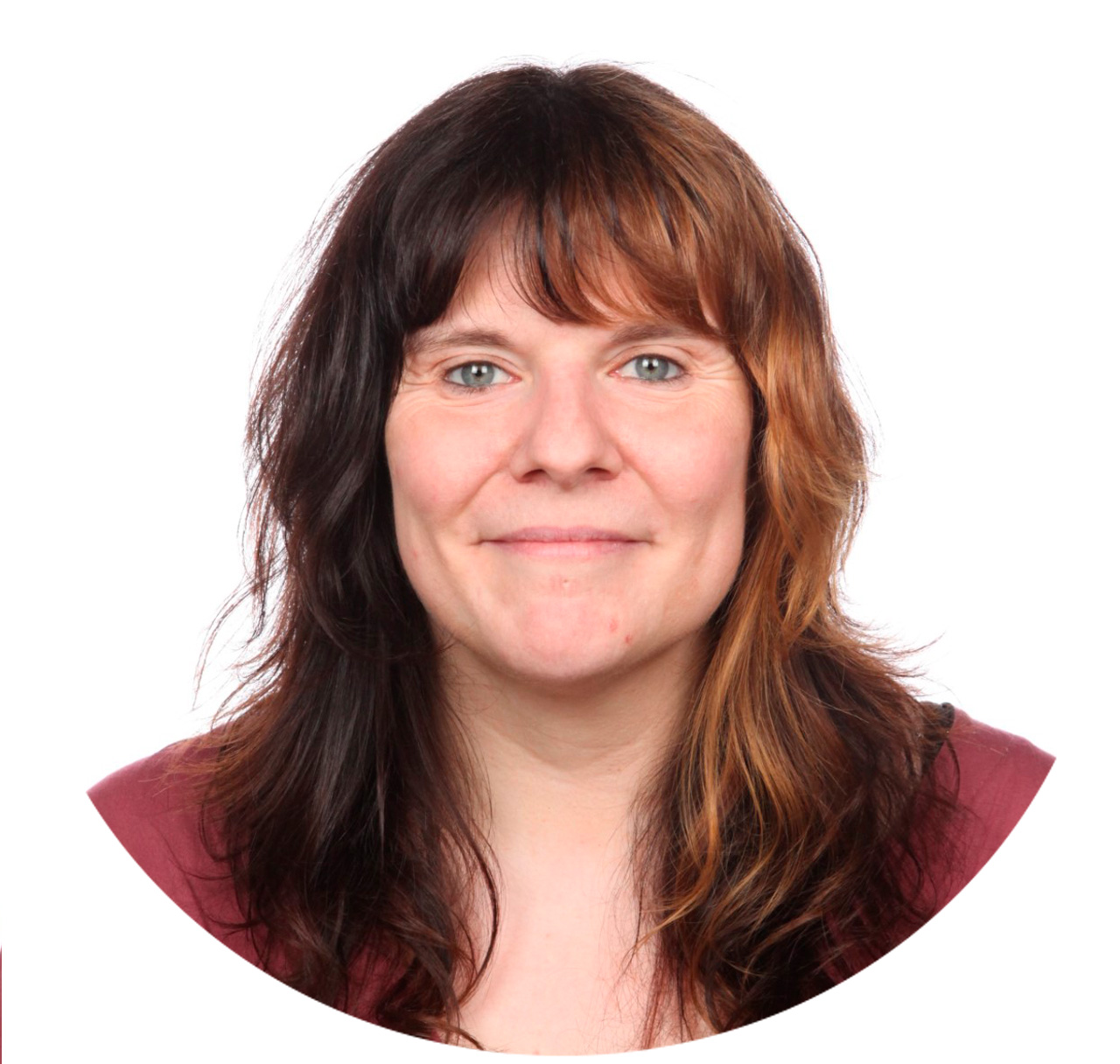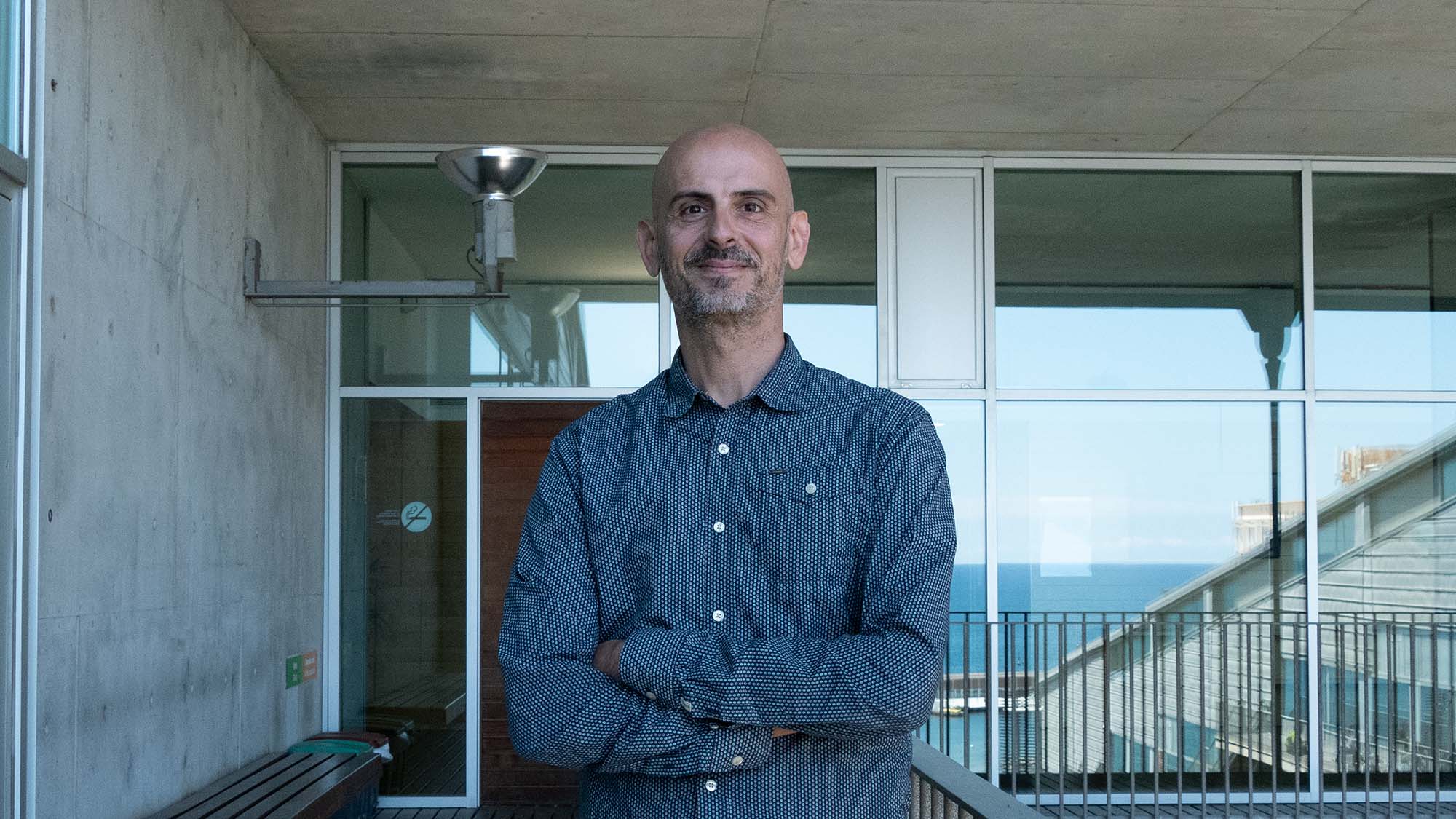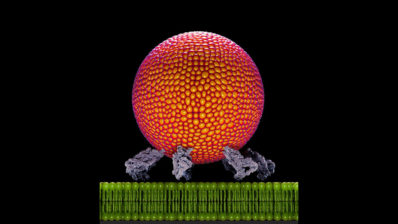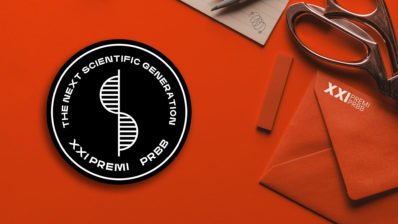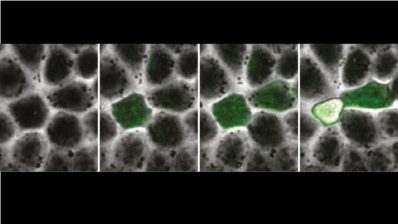Roger Anglada works at the Genomics Service of the Department of Medicine and Life Sciences, Pompeu Fabra University (MELIS-UPF). This is a scientific-technical service that provides support to the research teams of the Barcelona Biomedical Research Park (PRBB) in the processing and analysis of genomic data. The Service has a team of 4 people with expertise in sequencing and state-of-the-art DNA sequencing equipment.
The service is also committed to the development of new genetic analysis methodologies and offers advice and training to researchers. We talked to Roger about what his profession is like, the road to get there and his day-to-day life.
We try to be the best in the technologies we use and to be always up to date because we are the link between the technology and the researcher.
What does your work consist of?
Within the PRBB there are different scientific-technical services and ours specifically is the genomics service. Our team offers sequencing services to PRBB research centers and external clients. We are dedicated to DNA sequencing with different technologies and platforms in which we are experts.
We also support the research teams in the different stages of the research. We advise them on the design of the study methodology and on the latest technologies available. We try to be the best in this and to be always up to date because we are the link between the technique and the researcher.
So you participate in many different scientific discoveries?
Indeed, and you feel like you are part of it! In some types of research they need us to design the project, to learn techniques and to know what to do at any given moment. We feel these projects as our own. The teams involved in these investigations value us and the confidence they have in us is very rewarding.
And you say you have to be always up to date with the latest sequencing technologies. Is this difficult? Do they change very fast?
Techniques change very quickly, but it’s not difficult to keep up to date because the users themselves make it easy for you. There are groups in the PRBB that we work with on a daily basis and they are aware of the latest developments, so they force us to keep up with them as well, which is very motivating. The researchers tell us what new things they have seen and ask us how we can do it. Then we have to learn it, but the groups themselves already guide us.
To visualize how rapidly these techniques are advancing, we can take the example of the sequencing of the first human genome. It was published 22 years ago and cost 3 billion dollars. It took 7 years to do it and thousands of people worked on it. Today, sequencing a genome costs about $1,000 and we do it in two days. The evolution in price is equivalent to an apartment in the Eixample going from costing 300,000 euros to costing 10 cents!
Therefore, we have managed to make it much cheaper and much faster. We need to continue to make it cheaper and faster, to make it an everyday thing. It could become a common tool, for example, at the doctors’, where it could be used to diagnose diseases such as cancer.
What is your day-to-day life like?
Every day is different and very varied. There are days of bureaucracy and others of a lot of manual work in the laboratory. We also have meetings to advise and design methodologies, or we need to be in front of the computer reading about new techniques. There are days of everything, and days when you have to do everything.
For example, a user may come to us and ask how he or she could do an analysis. We sit down with this person and look for the most appropriate technique. But someone may also come with some samples and we have to prepare a library or sequence them, do quality control… There are also more surreal days when samples of ancient DNA or historical memory arrive, and you have to put on a diving suit to go and do DNA extractions in a special laboratory!
Why did you choose this career path? How did you get here?
I studied a higher training degree in chemical analysis and did an internship in pharmacology at the Hospital del Mar Research Institute, which I enjoyed very much. There I performed anti-doping analyses. I extended my internship until I was able to get a contract and thanks to this I was able to work with the first quantitative PCR machine that arrived! When the Pompeu Fabra University created the genomics service and opened a position, I was able to apply thanks to the experience I had acquired.
Are there other ways to get there?
Yes, what is needed is that a necessity arises and a position opens up. In the team we have people who have come from very different paths: PhDs, graduates, technicians… The entry profiles are very varied, you can enter from pharmacy, biochemistry, bioinformatics, chemistry…
The world of science changes very fast. What you study gives you a foundation, but the most important thing you get out of it is the habits to keep learning. Once you start working, everything will be new again. You need a good foundation and that willingness to constantly train.
The world of science changes very fast. What you study gives you a foundation, but the most important thing you get out of it is the habits to keep learning.
Roger Anglada, Genomics Service, UPF
What do you like most about your job?
Individually, the most beautiful thing about this job is that you are constantly challenged. Every day is different and you have to constantly train yourself.
On a collective level, working in research is very rewarding because you see that it has benefits for society. Sometimes you see clinical or medical breakthroughs, or maybe you can recover some skeletal remains and return them to the family of a person who disappeared in a war.
What are the challenges or difficulties?
One of the difficulties is finding the financing to be able to buy new machines and replace those that have become obsolete, or to be able to have all the personnel you would like.
What is your team like?
I am part of a team of four people. Our boss is Núria Bonet. I feel like one more part of a team that has varied profiles, as we have already said. This adds up. As we are all very different, each one brings different things to the table.
What are your working tools?
Our main working tools, as always in science, are our head and our hands. But then we also have cutting-edge technology to do genetic analysis, from first-generation DNA sequencers to second- and third-generation machines. We have many machines that we use to study DNA, we cover the whole market.
Manual work in the laboratory is also very varied, we can both pipette and use the lathe to polish bones and extract their DNA. And in addition to the laboratory tools, we also need the computer because we use a lot of search engines or genome databases. Our tools are very, very diverse.
What skills or abilities do you think are the most important to do your job?
Besides being rigorous and methodical, skills that are always present in the world of science, you must also have empathy. Science is often very frustrating and we are a service that receives people who may or may not be happy with the results. We must know how to deal with these emotions, be able to deal with moments of frustration and know how to manage both their mood and the changes that need to be made to the project or methodology in order to move forward.
You must also have communication skills, as we give talks at conferences, seminars, student visits or go to high schools to give talks. We participate in youth and science programs.
It’s important to be rigorous and methodical, but also have empathy and be a good communicator.
What advice would you give to a person who wants to dedicate themselves to this profession?
My advice would be that, if they want to do science, let them do it, go ahead. The limitations are often set by ourselves. However, you should also be humble and honest with yourself, and know that when you start you have a long way to go. Even if you have a very good record, you always have a lot to learn.
You cannot start a PhD thinking that you will have a Nobel Prize. The road is long and arduous, and you must start step by step. Sometimes the one who has the most patience and that who works constantly will get there. You need patience and a willingness to learn.
Is being in a core facility a more stable job than work in a laboratory?
The answer is yes and no. One of the big problems of science in Spain is stability, because you work on a project basis and you don’t know where you will be – or even if you will have a job – in 5 years. The fact that we are in a scientific-technical service, which depends on the University, means that we do not have this problem, because our positions are fixed.
But at the same time, the opportunities for promotion or to apply for projects and carry out your own research are much more limited. Despite this, I feel very lucky to have this peace of mind in my job. However, it is not easy to get here, you have to be at the right time in the right place, because few positions are open. Every year many places open up to do a thesis, but service positions are rarer.
How do you see your future?
I understand that I will continue working at UPF because I am lucky to have a permanent contract. I hope they allow me to stay for many years because I like it and I enjoy it very much! I will continue to do genetics, but the techniques and platforms that we will have in 10 years’ time are hard for me to imagine. They are changing a lot. Now we have a DNA sequencer that fits in your pocket. 10 years from now I don’t know what kind of things we will be able to do! Maybe we will sequence DNA with a mobile app or there will be places where people can sequence their DNA for €10, like in the movie GATTACA.
